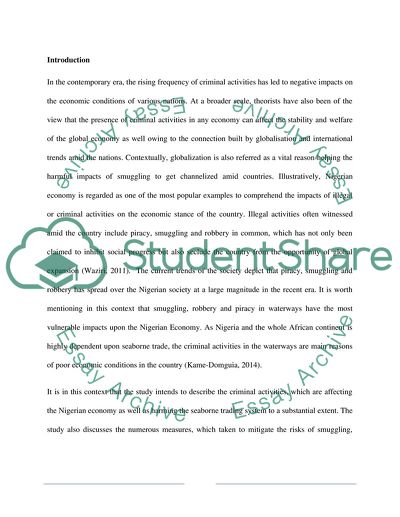Cite this document
(The Effects of Piracy, Smuggling, and Robbery on the Economy in Nigeri Coursework, n.d.)
The Effects of Piracy, Smuggling, and Robbery on the Economy in Nigeri Coursework. Retrieved from https://studentshare.org/macro-microeconomics/1671460-the-effects-of-piracysmuggling-and-robbery-on-the-economy-control-measures-in-nigeria-waterways
The Effects of Piracy, Smuggling, and Robbery on the Economy in Nigeri Coursework. Retrieved from https://studentshare.org/macro-microeconomics/1671460-the-effects-of-piracysmuggling-and-robbery-on-the-economy-control-measures-in-nigeria-waterways
(The Effects of Piracy, Smuggling, and Robbery on the Economy in Nigeri Coursework)
The Effects of Piracy, Smuggling, and Robbery on the Economy in Nigeri Coursework. https://studentshare.org/macro-microeconomics/1671460-the-effects-of-piracysmuggling-and-robbery-on-the-economy-control-measures-in-nigeria-waterways.
The Effects of Piracy, Smuggling, and Robbery on the Economy in Nigeri Coursework. https://studentshare.org/macro-microeconomics/1671460-the-effects-of-piracysmuggling-and-robbery-on-the-economy-control-measures-in-nigeria-waterways.
“The Effects of Piracy, Smuggling, and Robbery on the Economy in Nigeri Coursework”, n.d. https://studentshare.org/macro-microeconomics/1671460-the-effects-of-piracysmuggling-and-robbery-on-the-economy-control-measures-in-nigeria-waterways.


